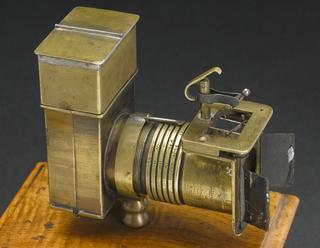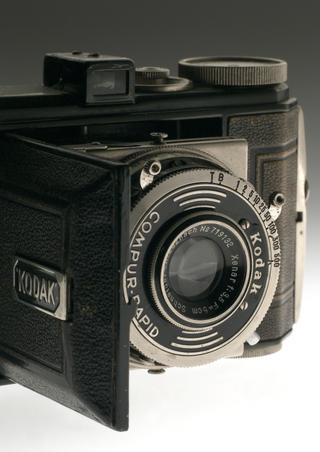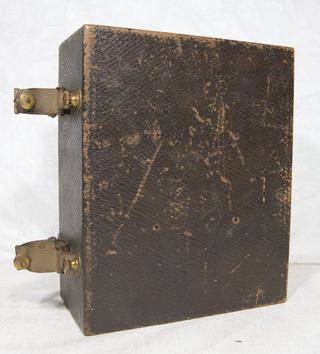
Snappa Miniature Camera
- Made:
- 1915 in United Kingdom




Snappa miniature camera with dark slide.
This is a Thornton-Pickard “Snappa”, a low-cost snapshot camera.
Thornton-Pickard was a camera manufacturer, founded in Manchester 1888 by John Thornton and Edgar Pickard, but based in Altrincham from 1891. The new company’s products, particularly camera shutters, were initially designed by Thornton, who had already been manufacturing photographic equipment under his own name. Despite Edgar Pickard’s death in 1897 and John Thornton’s resignation in 1898, the firm gradually grew to become an important camera manufacturer in the years leading up to the First World War.
As its name suggests, the “Snappa” was designed as a simple, cheap, camera for taking snapshots. In the early 20th century Thornton-Pickard introduced several simple camera models for the rapidly growing amateur photography market, including the Snappa. Although it used glass plates rather than convenient rolls of film, like many of its rivals, the Snappa’s design was notably compact. It was formed of a box housed inside another box, which could be slid out to extend the camera for use, then tucked away to fit in a pocket.
Details
- Category:
- Photographic Technology
- Object Number:
- Y1978.48
- Materials:
- metal (unknown), leather, wood (unidentified) and glass
- Measurements:
-
overall (upright): 60 mm x 90 mm x 64 mm,
- type:
- camera
- credit:
- Gift of Mr. J.B. Webster




